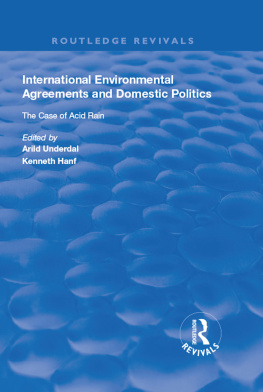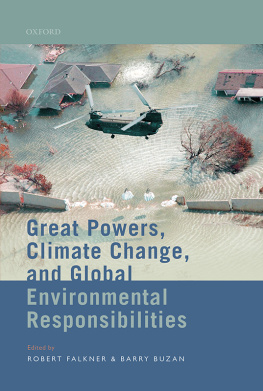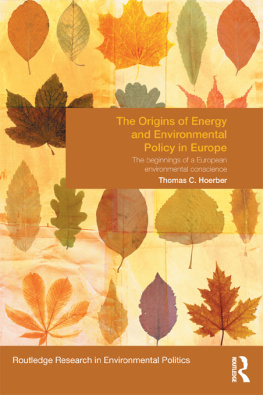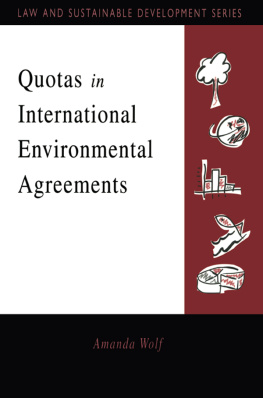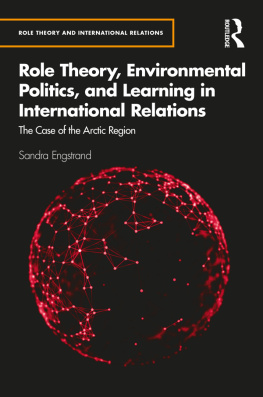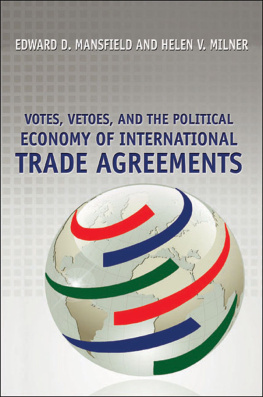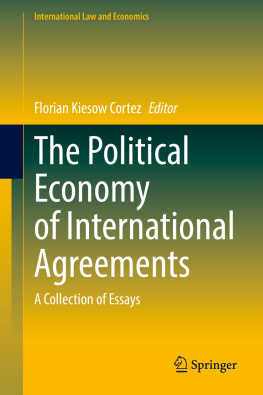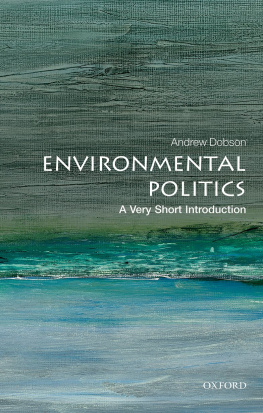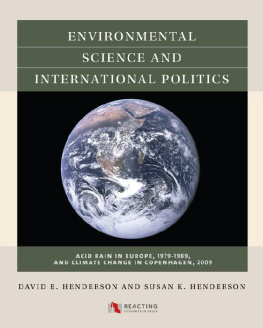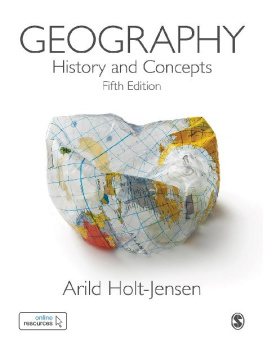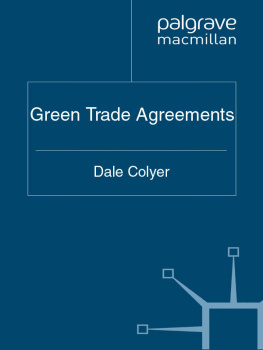INTERNATIONAL ENVIRONMENTAL AGREEMENTS AND DOMESTIC POLITICS
International Environmental Agreements and Domestic Politics
The case of acid rain
Edited by
ARILD UNDERDAL
University of Oslo
KENNETH HANF
University of Barcelona
First published 2000 by Ashgate Publishing
Reissued 2019 by Routledge
2 Park Square, Milton Park, Abingdon, Oxon, OX14 4RN
52 Vanderbilt Avenue, New York, NY 10017
Routledge is an imprint of the Taylor & Francis Group, an informa business
Arild Underdal and Kenneth Hanf 2000
All rights reserved. No part of this book may be reprinted or reproduced or utilised in any form or by any electronic, mechanical, or other means, now known or hereafter invented, including photocopying and recording, or in any information storage or retrieval system, without permission in writing from the publishers.
Notice:
Product or corporate names may be trademarks or registered trademarks, and are used only for identification and explanation without intent to infringe.
Publishers Note
The publisher has gone to great lengths to ensure the quality of this reprint but points out that some imperfections in the original copies may be apparent.
Disclaimer
The publisher has made every effort to trace copyright holders and welcomes correspondence from those they have been unable to contact.
A Library of Congress record exists under LC control number:
ISBN 13: 978-1-138-71308-6 (hbk)
ISBN 13: 978-1-315-19956-6 (ebk)
Contents
Kenneth Hanf
Kenneth Hanf
Arild Underdal
Karin Bckstrand and Henrik Selin
Torunn Laugen
Detlef F. Sprinz and Andreas Wahl
Petteri Hiienkoski
Stephan Kux and Walter Schenkel
Jim Skea and Caroline du Monteuil
Rodolfo Lewanski
Sonja Boehmer-Christiansen
Joaquin Lpez-Novo and Francesc Morata
Arild Underdal
Karin Bckstrand is a doctoral student at the Department of Political Science, Lund University, working on a dissertation analysing the use of scientific inputs in the efforts to regulate transboundary air pollution.
Sonja Boehmer-Christiansen is Reader of Geography at the University of Hull.
Caroline du Monteuil was during this work a doctoral student at Science and Technology Policy Research Unit (SPRU), University of Sussex.
Kenneth Hanf was until recently Senior Lecturer in Public Administration at the Erasmus University in Rotterdam. He is presently teaching at the Pompeu Fabra University of Barcelona. He is also engaged in research at the Institute of Advanced Social Studies of the Spanish Superior Council of Scientific Research (IESA-CSIC), also in Barcelona.
Petteri Hiienkoski is Lecturer in Communication and Political Studies at the Helsinki Evangelical College. During most of this project he worked as a Research Fellow at the Finnish Institute of International Affairs.
Stephan Kux is a senior lecturer in Political Science at the University of Zrich.
Torunn Laugen started her work on this project as a student at the Fridtjof Nansen Institute, in Oslo. She is now working in the Norwegian Ministry of Defense.
Rodolfo Lewanski is Senior Lecturer in Public Administration at the Faculty of Political Science, University of Bologna.
Joaqun Lpez-Novo is Lecturer in Sociology at Universidad Complutense de Madrid.
Francesc Morata is Professor of Political Science and Public Administration at the Autonomous University of Barcelona.
Walter Schenkel has a Ph.D. in political science from the University of Zrich.
Henrik Selin is a doctoral student at the Department of Water and Environmental Studies, Linkping University, working on a dissertation analysing the politics of regulating emissions of persistent organic pollutants within the LRTAP regime.
Jim Skea is Director of the Policy Studies Institute, London. Until recently, he was Director of the Economic and Social Research Councils (ESRCs) Global Environmental Change Programme and a Professorial Fellow in the Environment Programme at SPRU, University of Sussex.
Detlef F. Sprinz is a Senior Research Fellow at the Potsdam Institute for Climate Impact Research (PIK), and teaches international relations at the University of Potsdam.
Arild Underdal is Professor of Political Science at the University of Oslo and Senior Research Fellow at the Center for International Climate and Environmental Research (CICERO).
Andreas Wahl was during his work on this project a research assistant at the Potsdam Institute for Climate Impact Research (PIK). He has subsequently joined the civil service of the City of Berlin.
This book represents the last step along a long road that began with the first of a series of meetings organised within the European Science Foundations Scientific Programme on Environment, Science and Society. Building on the ideas and experiences exchanged in the course of these meetings, a proposal was submitted to the European Commission for research into the domestic underpinnings of international co-operation. Research on the domestic bases of international environmental agreements and the modelling of national-international linkages was subsequently carried out under the grant EV5V-CT92-0185 from the European Unions Environ-mental Research Programme (Economic and Social Aspects of the Environment). Supplementary grants from national research councils enabled us to include also countries that were not EU members. We would like to thank all these funding agencies, and in particular DG XII of the European Commission for its help it getting the project off the ground and keeping in the right track during its lifetime. Our special debt of gratitude is due to Angela Liberatore of DG XII, who had the thankless task of prodding us to meet long past deadlines and to complete missing reports. Angela acquitted herself of this job with forbearance and patience. She was able to combine effectively firmness and a sense of humour. But her contribution was more than that of an able administrator; she also made important intellectual contributions to its development.
Of course, no project can succeed without the individual and joint efforts of the researcher teams involved. Ultimately, it is to them that the credit is due for the completion of the research tasks we perhaps all too light-heartedly had assumed. Their willingness to undertake the revisions of the original country studies made this book possible. Their constant queries regarding the status of the manuscript provided the extra amount of pressure to keep us on course.
The final research report submitted to the Commission also contained a case study on the Netherlands. Although it was not possible to revise that study in time for this book, we would nevertheless like to thank its authors, Jos Lippman and Julie Raadschelders, for their contributions to the project. Their material is used in the comparative analysis. The initial comparative analysis of the national experiences also drew on data and information from a case study on Hungary carried out by Larry OToole. The results of this study are contained in a separate book, entitled Institutions, Policy and Outputs for Acidification: The Case of Hungary, published by Ashgate in 1998.
A word of special thanks is due to Tarje Johnsen, who juggled his political science studies with the erratic arrival of still new chapters and requests for revisions, to produce the camera-ready copy for the book.


